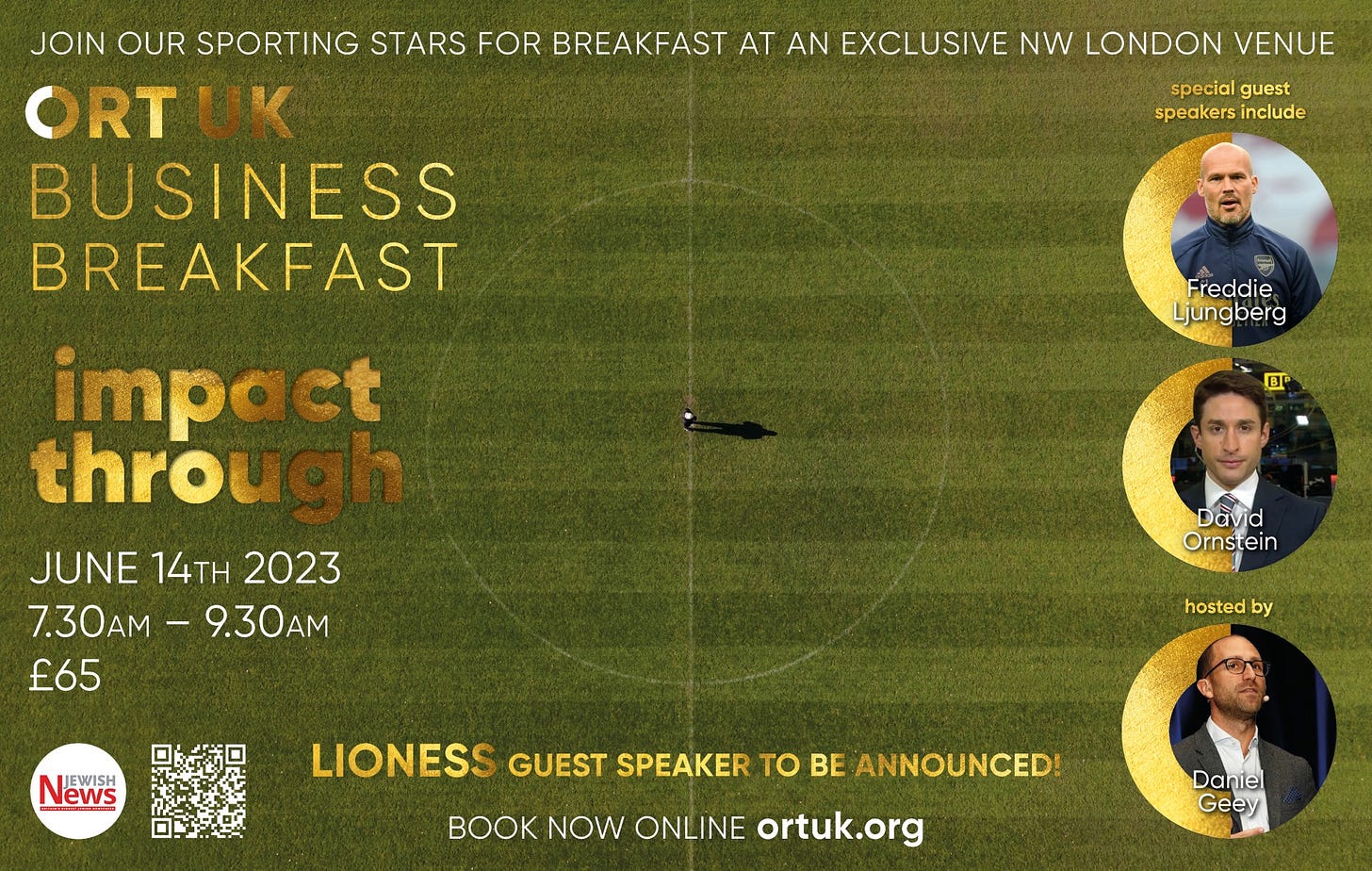Why You Should Forget About Your Ideal Job (For Now)
Jordan and I sat down to talk about her career so far. We covered getting in the door, adding value and being consistent.
📖 Read the full transcript on danielgeey.com
📺 Watch our full interview here:
🎧 Listen to the podcast here:
This week I’m sharing an anecdote from my interview with Jordan Williamson, and my takeaways from it.
When I was back home one summer, I chatted to my dad and he kept politely insisting ‘you should get some work experience’ …
… I was planning on doing some free work experience to get myself ‘in somewhere’ to, I don’t know… organise someone's paper clips or whatever they have you doing; making cups of tea. I figured that I’d want to do it somewhere interesting at least and pretty much everywhere has a finance department, so you just have to scan the opportunities.
I was searching for sports agencies or just sports generally because I didn't even really know what an agency was at the time…
Funnily enough, a lot of people normally get in touch to work with the athlete management team, or the brands team but very few people actually want to come and do work experience for the finance team. I think they were actually really glad to have an extra set of hands and were almost a bit shocked that I was asking to help with the finance side of things. They were like, ‘are you sure you've not got the wrong department?’ … I think that was again a bit of luck, bit of timing and a bit of opportunity.
🧠 Think short and long term.
The end goal may be I want to do X, but the route starts at A.
I started as a regulatory lawyer, not a sports lawyer.
My day-to-day included everything from car parts, to aviation, to agriculture.
BUT through investing in the process, and building the invisible, I was able to bridge the short and the long term.
In other words, what appears to be the wrong department may actually be the right department.
Read more about this in Chapter 1 of Build the Invisible, Luck and Opportunity.
The next element of luck to come into it was that, at the time I was doing two weeks work experience so again, just helping with a lot of the admin, inputting data etc. But the finance team sat next to the athlete management team and one of the guys I was working with did a lot of the finance for the players the agency managed. Starting a new job, everyone tells you to go in, be enthusiastic, talk to people, listen in to what everyone's saying. I just got chatting to the people around me and I was lucky enough that they were all open to have conversations and give me the time of day. There would be work drinks Fridays where you would start to, humanise and engage with people, and make yourself a person rather than just the ‘work experience kid’.
🙋 Ask questions.
Though Jordan’s example is from her work experience, the principals can be extended to any occasion where you’re entering a new space with new people.
It sounds simple, but the best thing to do when meeting new people is to 1) ask open ended questions and 2) listen to their answers.
To take this one step further, you then need to remember what they’ve said!
Hence why I started to journal.
I guess this is where the luck falls away and you have to start thinking … how can I provide value?
… the thing that came up quite a lot in those couple of weeks, was social media. This was when social media was really starting to kick in and a lot of the agents just in that week alone had calls from their players being like ‘what's this twitter thing about'. I heard a few failed attempts at responding to that question, and just by the nature of being a bit younger, I had a bit more of a foundation of what social media was, what it was becoming and how it was working.
So that was like little light bulb moment. I was like ‘okay cool, this is where I can maybe help’. So I started to chat to the guys and ask if there was anything I could do to be useful. I ended up coming up with a cheat sheet for Twitter; really simple stuff which now, everyone takes for granted. At the time setting up a twitter account and being asked what is twitter? What is a hashtag? There was all these things that were completely foreign to rugby players, footballers or other athletes. So just by creating some materials, that then meant, that they invited me back at the end of the summer to complete that work.
⌛ Add value.
The question shouldn’t just be ‘how can I help’, but rather, ‘this is how I can help, what do you think?’.
I’ve mentioned before about being ‘time poor’.
The more successful you are, objectively, the more ‘time poor’ you become.
So the best way to add value, I feel, is to save someone time.
For Jordan, this meant creating a cheat sheet that outlined what Twitter was, and how to use it. Jordan saved people the time and effort of having to figure out this new platform.
As a result, she was asked back the following year. Micro-value quickly multiplies.
📺 More content from me:
🎫 Upcoming event:
Look out for the next edition of the Build The Invisible Substack, where I will be sharing lessons from Joel Mishcon, founder and CEO of Chrome Productions.
Chrome is a London based production company producing ground-breaking, inspiring and award winning commercials for a digital audience.




